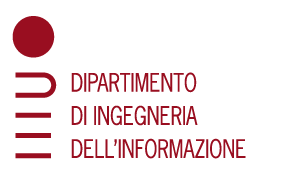Submitted by admin on
Paolo Vicini is Senior Director of Clinical Pharmacology, Pharmacometrics and DMPK (Drug Metabolism and Pharmacokinetics) at MedImmune, a wholly owned subsidiary of AstraZeneca. Previously, Paolo was a Research Fellow with Pfizer Worldwide Research and Development in San Diego and a Bioengineering faculty member at the University of Washington, Seattle, where he continues to be an Affiliate Associate Professor in Bioengineering and Pharmaceutics. He served on the National Institutes of Health Biomedical Computing and Health Informatics Study Section, published to date 130 peer-reviewed articles and is on the Advisory Editorial Board of the Journal of Pharmacokinetics and Pharmacodynamics and of Clinical Pharmacology and Therapeutics. He served as an Associate Editor of CPT: Pharmacometrics and Systems Pharmacology. He is a Fellow of the American Association of Pharmaceutical Scientists and a member of the Biomedical Engineering Society, the IEEE Engineering in Medicine and Biology Society, the International Society of Pharmacometrics, the International Society for the Study of Xenobiotics, the American Diabetes Association and Beta Gamma Sigma. He currently serves on the Board of Directors of the American Society of Clinical Pharmacology and Therapeutics. Paolo holds a Ph.D. in Bioengineering from the Polytechnic of Milan and a MBA from the University of Southern California.
The discovery and development of a new medicine is a long, complex process, characterized by varying degrees of uncertainty at all stages. In addition to incomplete knowledge about the underlying disease mechanisms, challenges can include uncertain translation from preclinical to clinical phases, high failure rate for molecules during clinical testing, and heterogeneity among patients. Quantitative approaches to pharmacology have recently benefited from the integration of diverse research areas (engineering, biology, chemistry and pharmacology, in addition to others) to solve outstanding problems in drug development. Molecule candidate selection, dosing regimens, clinical trials design and execution, and the identification of patient populations are examples of areas that benefit from quantitative pharmacology. These methodologies can be based on sophisticated computer statistical simulations and mechanistic modeling, and are often carried out within the developing disciplines of pharmacometrics and systems pharmacology. These borrow methods and approaches from many scientific fields in pursuit of a more complete understanding of both pharmacokinetics (what the body does to the drug) and pharmacodynamics (what the drug does to the body) characteristics of a drug molecule. This presentation will provide an overview of the history and application of these approaches, with practical examples in multiple therapeutic areas.






